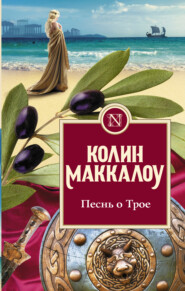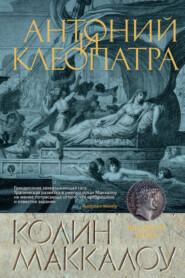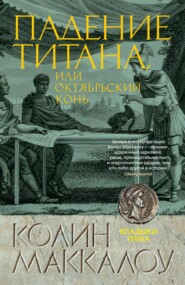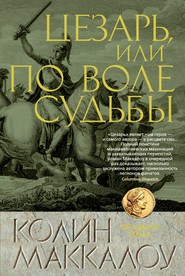По всем вопросам обращайтесь на: info@litportal.ru
(©) 2003-2024.
✖
On, Off
Автор
Год написания книги
2018
Настройки чтения
Размер шрифта
Высота строк
Поля
Carmine glanced at his watch. “Time I let you go home, sir. Thanks for being so co-operative.”
“You don’t really think that the body has anything to do with the Hug and my people?” the Prof asked as he walked with Carmine down the hall.
“I think that the body has everything to do with the Hug and your people. And, Professor, postpone your board meeting until next Monday, please. You’re at liberty to explain the situation to Mr. Roger Parson Junior and President MacIntosh as of now, but the information chain cuts off right there. No exceptions, from wives to colleagues.”
Being next door to the Holloman County Services building meant that Malvolio’s found it profitable to stay open 24 hours a day. Perhaps because so many of its patrons wore navy-blue, the décor was after the manner of a powder-blue Wedgwood plate, with white molded plaster maidens, garlands and curliques to break up the blueness. Corey and Abe had long gone home when Carmine parked the Ford outside it and went in to order meatloaf with gravy and mashed potatoes, a side salad with Green Goddess dressing, and two wedges of apple pie à la mode.
Stomach full at last, he walked home to take a long shower, then fell naked into bed and didn’t remember his head hitting the pillow.
Hilda Silverman, home to find that Ruth had already made the dinner: a casserole of pork chops she hadn’t bothered to de-fat, Smash powdered mashed potatoes, a salad of iceberg lettuce limp and transparent from Italian dressing applied far too early, and a Sara Lee frozen chocolate cake for dessert. At least I have no trouble keeping my figure, Hilda thought; the miracle is how Keith manages to keep his, because he loves his mom’s cooking. That is about the only evidence of his poor white trash origins left in his character. No, Hilda, be fair! He loves his mom just as much as he loves her cooking.
Not that he was present. His plate was sitting, covered in foil, atop a pot of water that Ruth kept on the simmer until her son came in, even if that meant two or three in the morning.
Hilda disliked her mother-in-law because she was so defiantly poor white trash to this day, but they were joined at the hip—a hip named Keith—and jealousy did not enter the picture. Keith was all, that simple. If Keith preferred people not to know of his background, that was fine by his mom, who would have died for him as cheerfully as Hilda would have.
Ruth made a great deal of difference to Keith’s and Hilda’s comfort in that her presence enabled Hilda to continue in her very well paid job. Even better, Ruth actually liked living in an awful house in an awful neighborhood; it reminded her (and a shrinking Keith) of her old house in Dayton, Ohio. Another place where people filled their backyards with dead washing machines and rusted car bodies. As damp, as depressing, as cold as Griswold Lane in Holloman, Connecticut.
Keith and Hilda lived in the worst house on Griswold Lane because its rent was a pittance, enabling them to save most of their combined salaries (hers was twice his). Now that Keith was out of his residency and marking time as a post-doctoral fellow, he was planning to buy into a lucrative neurosurgical practice, preferably located in New York City. Not for Keith Kyneton the lowpaid drag of academic medicine! Mother and wife struggled heroically to help him achieve his ambition. Ruth was a natural cheapskate who deemed J.C. Penney’s outrageously expensive and bought the day before yesterday’s produce at the supermarket; Hilda scrimped over something as trivial as a haircut, wouldn’t buy a nice pair of barettes, and suffered her Coke-bottle-bottom glasses. Whereas Keith’s clothing and car had to be the best, and his work made the huge expense of contact lenses mandatory. What Keith wanted, Keith must have.
At which moment, just as Ruth and Hilda were sitting down, in breezed Keith, and with him the sun, the moon, the stars and all the angels in heaven. Hilda leaped to throw her arms around him, nuzzle her head under his chin—oh, he was so tall, so—so fantastic!
“Hi, honey,” he said, one arm about her, and leaning across the top of her head to peck his mother on the cheek. “Hi, Mom, what’s for dinner? Is that your pork chops I smell?”
“Sure is, son. Sit down while I get your plate.”
So they sat around three sides of the small square table in the kitchen, Keith and Ruth devouring the greasy, rather ersatz meal with gusto, Hilda picking at it.
“We had a murder today,” Hilda said, sawing at a chop.
Keith looked up, too busy to comment; Ruth put down her fork and stared.
“Criminy!” she said. “An honest-to-God murder?”
“Well, a body, at any rate. That’s why I was so late home. The police were all over the place and wouldn’t let any of us leave, even for lunch. For some reason they left the fourth floor until last, though how would anybody on the fourth floor know anything about a body in animal care on the first floor?” Hilda huffed indignantly and succeeded in de-fatting her chop.
“It’s all around the hospital and medical school,” Keith said, pausing to help himself to two more chops. “I’ve been in the O.R. all day, but even in there the anesthetist and the instrument nurse were full of it. As if a bifurcated aneurysm on the middle cerebral artery weren’t enough! Then the radiologist came in with the news that there’s another aneurysm on the basilar artery, so all our work will probably go for nothing.”
“Surely the angiogram showed that before you started?”
“Basilar didn’t fill properly and Missingham didn’t see the films until we were almost done—he’d been in Boston. His deputy couldn’t find his ass with both hands inside his shorts, let alone an aneurysm on a poorly filled basilar artery! Sorry, Mom, but it was a frustrating day. Nothing went right.”
Eyes soft, Hilda gazed at him adoringly. How had she ever managed to capture Keith Kyneton’s attention? A mystery, but one she was permanently grateful for. He was all her dreams rolled in one, from his height to his curly fair hair, his beautiful grey eyes, his chiseled facial bones, his muscular body. And he was so charming, so well spoken, so eminently likeable! Not to mention a highly able neurosurgeon who’d chosen a good speciality, cerebral aneurysms. Until recently they had been inoperable death sentences, but now that neurosurgery had body-freezing techniques and the heart could be stopped for a few precious minutes while an aneurysm was clipped off, Keith’s future was assured.
“Go on, give us the details,” said Ruth, eyes glistening.
“I can’t, Ruth, because I don’t have any. The police were very close-mouthed about it, and the lieutenant who talked to me could have given lessons in discretion to a Catholic priest. Sonia told me he impressed her as a very intelligent and quite well educated man, and I saw what she meant.”
“What was his name?”
“Something Italian.”
“Aren’t they all?” Keith asked, and laughed.
Professor Bob Smith, home with his wife, Eliza, after dinner was finished and the boys sent to do homework.
“It’s going to make life difficult.”
“The Board, you mean?” she asked, pouring him more coffee.
“Yes, the Board, but more the work, dear. You know just how temperamental they can be! The only one who doesn’t bug me is Addison. He’s grateful to be alive, his ideas on anticonvulsants are as pleasing to him as they are to me, and provided none of his equipment breaks down, he’s content. Though how anybody can jog five miles a day and be content, I don’t know. Lazarus complex.” He grinned, which did wonders for his already striking face. “Oh, how upset he was when I told him jogging to work in the mornings was not going to happen! But he managed to sit on his rage.”
She giggled, an attractive sound. “You’d think it would occur to the jogger that having to smell his B.O. after he jogs doesn’t make him an ideal work companion.” She sobered. “It’s his poor wife I feel sorriest for.”
“Robin? That nonentity? Why?”
“Because Addison Forbes treats her like a servant, Bob. Yes, he does! The lengths she has to go to to find food he’ll eat! And washing smelly clothes—she has no kind of life.”
“That sounds rather petty to me, dear.”
“Yes, I suppose it does, but she’s—well, not the world’s brightest person, and Addison makes her feel it. Sometimes I’ve caught him looking sideways at her and had the heeby-jeebies—I swear he hates her, really hates her!”
“It can happen when a medical student has to marry a nurse to get through,” Smith said rather dryly. “There’s no intellectual equality, and after he makes his mark, she’s an embarrassment.”
“You’re such a snob.”
“No, a pragmatist. I’m right.”
“So okay, maybe you do have a point, but it’s a pitiless attitude just the same,” Eliza said valiantly. “I mean, even in their own home he locks her out! There they have this gorgeous turret with a widow’s walk overlooking the harbor, and he won’t let her up there! What is it, Bluebeard’s chamber?”
“Evidence of her untidiness, and his obsession with order. I lock you out of the basement, don’t forget.”
“You’ll get no complaints from me about that, but I do think you’re too hard on the boys. They’re way past the destructive age now. Why not let them go down?”
His jaws clamped, hardening his face. “The boys are barred from the basement permanently, Eliza.”
“Then it isn’t fair, because you spend every free second you have down there. You ought to spend more time with the boys, so let them share your folly.”
“I wish you wouldn’t refer to it as a folly!”
She changed the subject; he had that obdurate look now, he wasn’t about to listen. “Is this murder really such a problem, Bob? I mean, it can’t possibly have anything to do with the Hug.”
“I agree, dear, but the police think otherwise,” said Smith mournfully. “Would you believe that we’ve been fingerprinted? Lucky we’re a research lab. The ink came off in xylene.”
Walt Polonowski, to his wife, his tone ungracious.
“Have you seen my red checkered jacket?”
She paused in her rounds of the kitchen, Mikey straddling her hip, Esther clinging to her skirt, and looked at him in mingled scorn and exasperation. “Christ almighty, Walt, it can’t be the hunting season yet!” she snapped.














